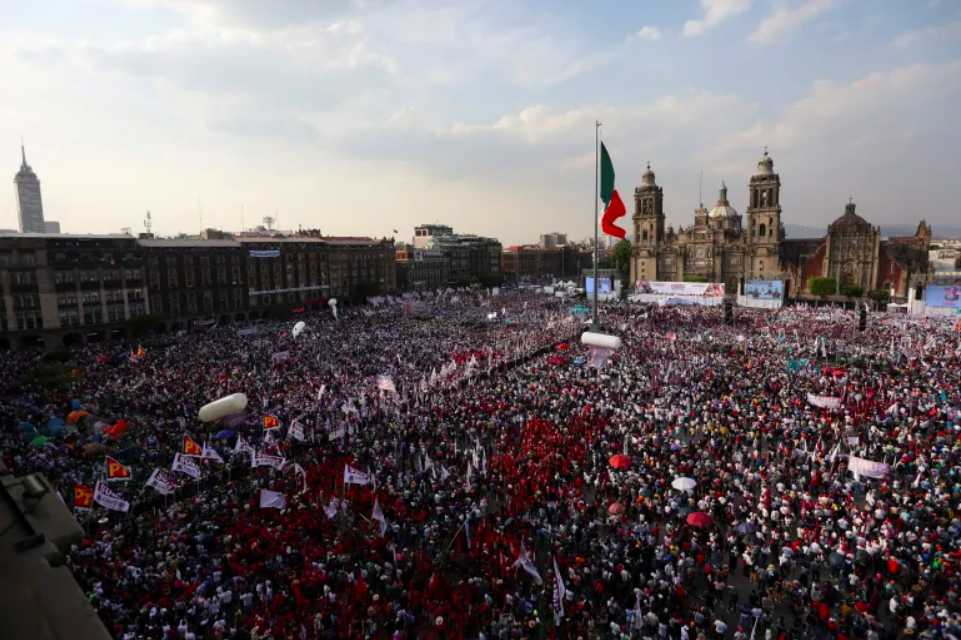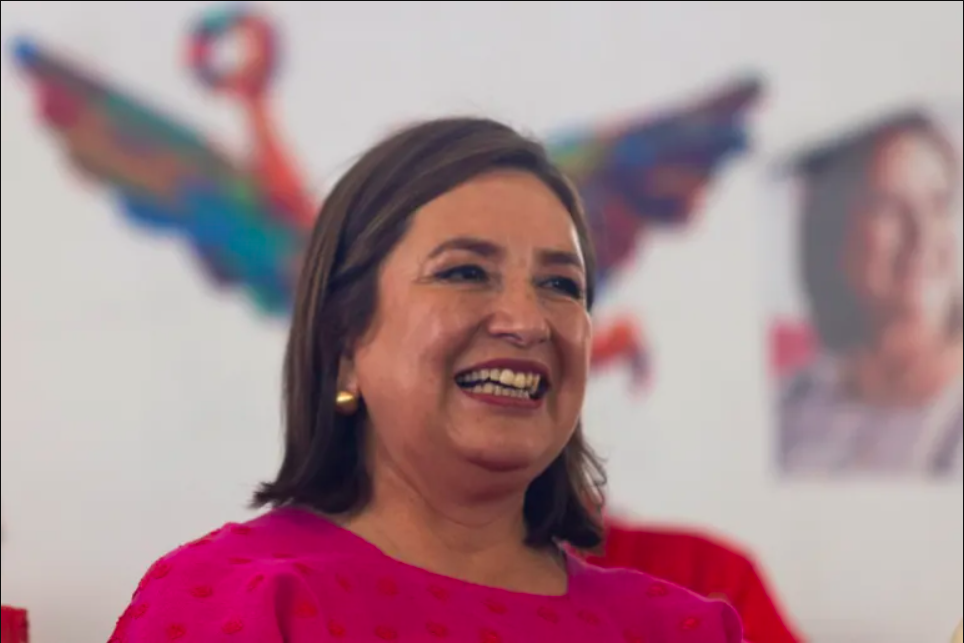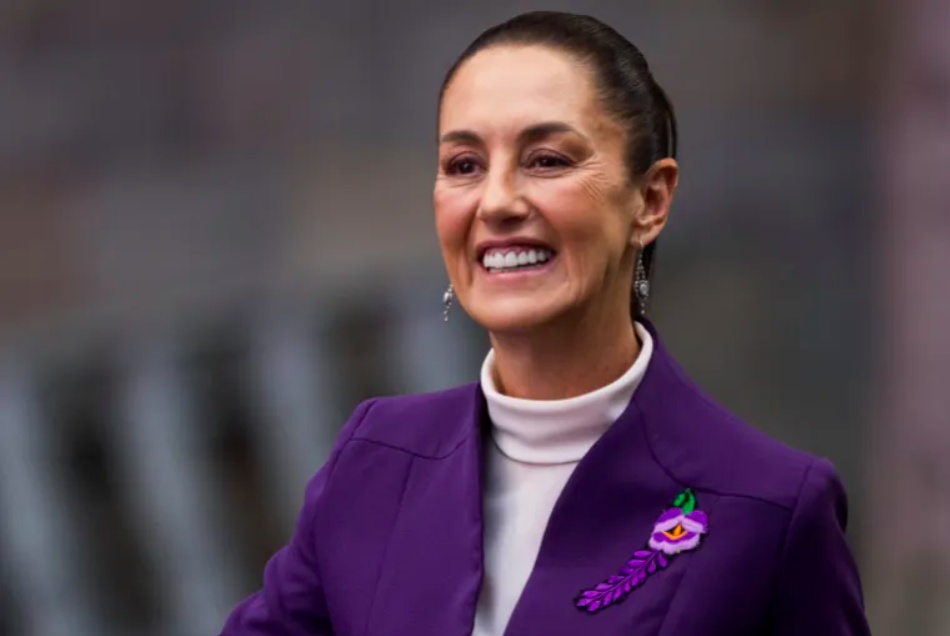
Published 05/29/2024 16:13 | Edited 05/29/2024 17:47
Next Sunday (2) will see the largest number of voters in the history of Mexican elections, with around 100 million people eligible to vote. In addition to the presidency, 500 deputies, 128 senators, nine governors, 1,098 state deputies, 1,802 mayors and 14,674 councilors will be elected.
Mexico is preparing for a historic presidential election, marked by the possibility of electing the country’s first female president. Candidates Claudia Sheinbaum, from the Morena party, and Xóchitl Gálvez, from the opposition coalition, are the main competitors, in a country marked by violence against women and machismo. Former member of Congress Jorge Alvarez Maynez is the dark horse running on behalf of the Citizens Movement. O Red Portal consulted two international analysts to better understand the country’s direction in this electoral period.

Flávia Loss, professor of International Relations at FESP-SP (São Paulo School of Sociology and Politics Foundation), highlights that the election of a woman to the presidency of Mexico would be a historic milestone. “Whether it’s Claudia Sheinbaum or Xóchitl Gálvez, the election of Mexico’s first female president is a significant event. Both candidates bring with them different histories and political platforms, but the victory of either of them will represent an important advance for gender representation in the country,” she says.
The candidates and their coalitions
Claudia Sheinbaum, environmental engineer and former Secretary of the Environment of Mexico City, is seen as the natural successor to the policies of current President Andrés Manuel López Obrador (AMLO), who ends his term as one of the most popular leaders in modern history from Mexico. With a center-left coalition, Sheinbaum leads the polls with a significant advantage.

Ana Prestes, Secretary of International Relations at PCdoB, comments that Sheinbaum has around 60% of voting intentions, compared to 30% for Gálvez. “It represents the continuity of the policies of López Obrador, who, despite the difficulties, maintained high popularity throughout his term”, explains Ana.
On the other hand, Xóchitl Gálvez, a former senator and businesswoman of Otomi indigenous descent, is a complex and contradictory figure. Although she defends progressive agendas in some areas, her speech also resonates with neoliberal and conservative ideologies. Gálvez is supported by the PRI, PAN and PRD, the most right-wing parties in the country. “Felipe Calderón and Vicente Fox, both former presidents of Mexico, declared support for her, which clearly indicates their political connections and influences,” notes Ana.

López Obrador has become so popular that former rivals have had to ally themselves to compete in this year’s presidential race. Having PRI, PAN and PRD working together is a historical aberration. For most of Mexico’s democratic history, these three parties competed against each other. The Morena party should also enjoy this momentum in the elections, where its coalition intends to expand its majority in the legislature.
The PRI was the dominant political force in Mexico for much of the 20th century, maintaining power for 71 consecutive years, often through fraud and repression. The “Strength and Heart for Mexico” coalition joins it with the PAN, a rival conservative party that ended its series of governors in 2000. The second coalition unites Morena – the current government party – with the Green Ecological Party of Mexico (Green) and the Labor Party (PT).

Prestes highlights the importance of looking beyond the candidates and analyzing the coalitions and political support they represent. While Sheinbaum emerges as the candidate to continue López Obrador’s left-wing policies, Gálvez adopts a discourse of combating corruption, emphasizes gender and indigenous issues, but her government plan is aligned with neoliberalism. In this way, the opponent of the government cannot be seen as a candidate for change, especially due to her ties to the PRI, the most toxic party for public opinion.
Known for his outspoken personality, López Obrador made the fight against poverty a central pillar of his presidency. The Mexican political system allows for a six-year presidential term without the right to re-election, which explains why López Obrador is not running again. “This rule is different from many Latin American countries, where terms of office are generally 4 or 5 years with the possibility of re-election”, comments the PCdoB leader.
The challenges of violence
Polls show that voters listed issues such as security, social programs and corruption as top priorities.
However, a worrying aspect of Mexican elections is political violence. “Mexico is a country that, like Brazil, faces significant challenges in terms of political violence. Gender-based violence, in particular, is alarming. During election periods, candidates often face threats and deadly attacks, especially due to the influence of drug trafficking and organized crime”, observes Flávia.
“During the last general election, which was presidential, the violence was even more pronounced, with many candidates losing their lives in brutally absurd ways”, recalls Ana Prestes. Continuous violence was felt during the campaign season, with around 34 would-be candidates killed between September and this May. Although Mexico has implemented measures to combat this violence, the problem persists, exacerbated by the presence and influence of drug trafficking groups who use the electoral process as an arena to maintain and expand their control.
The presence of organized crime in Mexico, similar to militias in Brazil, further worsens the situation. Drug cartels dominate vast regions of the country, directly interfering in the political and electoral process. “The number of candidates murdered during the Mexican elections is impressive. Mayors, governors, deputies, everyone is at risk due to the dominance of drug trafficking cartels”, highlights Ana Prestes.
Last month, two mayoral candidates were found dead in the northern state of Tamaulipas. And on May 17, gunmen in the southern state of Chiapas killed six people at a political rally, including another mayoral candidate. Obrador voters’ greatest disappointment is expressed by his failure to crack down on crime and address the thousands of missing persons cases in Mexico, which have surpassed 100,000 under his presidency.
Similarities with Brazil
Flávia Loss draws parallels between Mexico and Brazil, highlighting the similarities in issues of gender violence and the power of organized crime. “Mexico, like Brazil, faces enormous challenges in terms of violence and crime. The proximity to the United States and the influence of drug trafficking make the situation even more complicated,” she notes.
The presence of organized crime in Mexico, similar to militias in Brazil, further worsens the situation. Drug cartels dominate vast regions of the country, directly interfering in the political and electoral process.
The 2024 Mexican elections are not just a contest between Claudia Sheinbaum and Xóchitl Gálvez, but also a battle between different government visions and political influences. In addition to proposals and alliances, the election is marked by the ongoing challenge of political violence, with candidates’ lives often at risk.
The outcome of the elections will be crucial not only for Mexico’s political future, but also for the security and stability of the democratic process in the country. Regardless of the outcome, the election of a woman to the presidency will be a historic milestone, and the fight against political and gender-based violence will remain a central challenge for Mexico’s democratic future.
Source: vermelho.org.br

